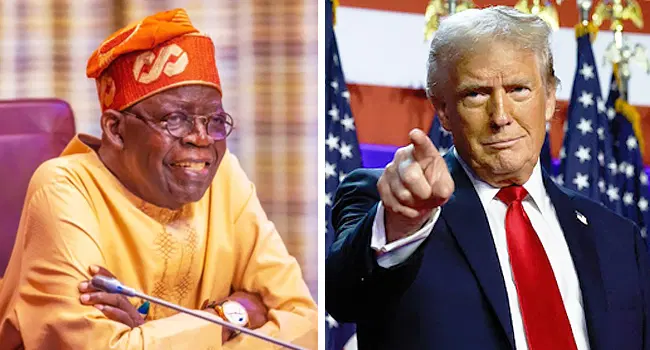
Lagos, Nigeria – Ambassador Joe Keshi, Nigeria’s former top envoy to the United States, has described the US government’s recent decision to reduce visa validity for Nigerians from five years to just three months as a major setback with far-reaching consequences for businesses, tech innovators, and students.
The new visa regime, which takes effect on July 8, 2025, was initially attributed by the US Mission to a reciprocity policy, but the Embassy later clarified it was part of a broader global review based on technical and security benchmarks. The statement insisted the change was not tied to Nigeria’s stance on rejecting deportees from Venezuela or its relationship with BRICS nations, which Nigeria is seeking to join.
“We value our longstanding partnership with Nigeria,” the Embassy stated in a post on X, “and remain committed to working closely with the Nigerian public and government officials to ensure safe, lawful, and mutually beneficial travel between our nations.”
However, the decision has sparked outrage among Nigerian officials and experts. The Presidency faulted the rationale, stating that reciprocity claims did not reflect the current reality of Nigeria’s visa policy toward US citizens. Foreign Affairs Minister Yusuf Tuggar went further, suggesting the new rule may be connected to Nigeria’s refusal to accept deportees from US prisons.
“It is unfair to expect Nigeria to accept Venezuelan prisoners. We already have our own challenges,” Tuggar stated during a television interview.
But according to Ambassador Keshi, the implications go beyond policy disagreements. He warned the policy will increase financial pressure on Nigerian travelers and deepen the already rampant corruption associated with visa processing.
“There’s huge corruption in visa issuance, and this policy will only worsen it. Nigerians already pay heavily to get visas, and now they’ll pay more every three months,” Keshi said.
He stressed that the policy disproportionately hurts Nigerians, especially businesspeople and students who travel frequently. “When you apply now, they’ll give you an interview date for next year. Imagine if you have urgent business in Washington — you simply can’t go,” he noted.
Keshi criticized the assumption of a “strategic” US-Nigeria relationship, calling instead for a reassessment and strengthening of diplomatic ties. He cited the lack of significant American investments in Nigeria, especially when compared to countries like South Africa, which reportedly hosts over 6,000 American companies.
“We deceive ourselves by claiming we have a strategic relationship with the US. It’s not true. We need to build a real, cordial relationship, not a cosmetic one,” he asserted.
On navigating the visa diplomacy, Keshi suggested that direct negotiations remain Nigeria’s best option. He also hinted that Nigeria’s poor implementation of a previous visa agreement may have influenced the US’s decision, alongside its global positioning in blocs like BRICS.
“There may be geopolitical undertones. Nigeria’s leaning toward BRICS and talk of de-dollarization might have triggered this. We must find out what we’re doing wrong diplomatically.”
Keshi also called on Nigeria to review its entire visa policy framework, especially with high-traffic countries like the UK and US, citing the staggering sums Nigerians pay annually for visa applications.
He concluded that Nigeria must leverage the current challenge to diversify global partnerships and strengthen its economy through increased production and exports, rather than overreliance on oil and foreign diplomacy.
“Until we become a productive nation, our influence in global trade will remain minimal. It’s time to stop doing things for show and start focusing on substance.”
The retired ambassador’s comments come amid calls for the Nigerian government to intensify diplomatic efforts to restore the previous visa arrangement and protect the interests of its citizens abroad.
Comments